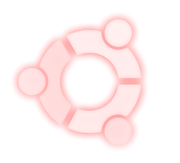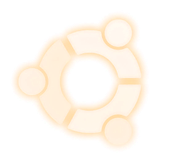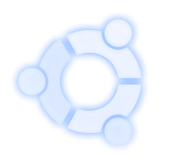You are not logged in.
- Topics: Active | Unanswered
#2381 2025-08-16 16:31:02
- Sector11
- Mod Squid Tpyo Knig

- From: Upstairs
- Registered: 2015-08-20
- Posts: 8,117
Re: Show us your conky
Hello, my friend, thank you very much for your help!
Your found the error.circlewriting
It was lines 397 cpu1 and 410 cpu2 of the Lua script.
In both cases, the y-value was changed from 220 to 210.
https://i.imgur.com/rtetZfWt.png
Your tip about not finding the "y-variable" clued me in.
I remember "adjusting" x and y variables for hours on a lot of the LUA scripts I've tweaked so it was an easy find.
Glad I could help.
I don't have the know how to write a LUA script, but given one I can bend fold and mutilate them into shape thanks to mrpeachy, RIP my friend, and falldowm, wherever you are, thanks.
Debian 12 Beardog, SoxDog and still a Conky 1.9er
Offline
#2382 2025-08-18 02:05:50
- marens
- Member

- From: World without M$
- Registered: 2023-02-02
- Posts: 1,077
Re: Show us your conky
@loutch
I really don't know why you use Conky to change the wallpaper at a specific time (Day/Night):
https://forums.bunsenlabs.org/viewtopic … 19#p145019
As I said, redshift always knows the exact time when day and night change at your location:
https://forums.bunsenlabs.org/viewtopic … 20#p145020
1) You need to install redshift (not redshift-gtk):
$ sudo apt install redshift2) Disable that conky (jour_nuit) at startup and redshift-gtk (if installed)
3) Add the redshift (command) to startup
4) Open the ~/.config folder and create a redshift.conf file inside for your location (Sarreguemines - lat=49.110001; lon=7.070000):
; Global settings
[redshift]
temp-day=5840
temp-night=4480
transition=1
gamma=0.9
location-provider=manual
adjustment-method=vidmode
; The location provider and adjustment method settings
; are in their own sections.
[manual]
lat=49.110001
lon=7.070000
; In this example screen 1 is adjusted by vidmode. Note
; that the numbering starts from 0, so this is actually
; the second screen.
[vidmode]
screen=15) Open the /home/loutch/Images folder and create a new wallpaper.sh should look like this:
#!/bin/bash
## Day/Night Wallpaper - with RedShift ##
sleep 8
if [[ "$(redshift -p | grep 'Period' | awk '{print $2}')" == "Night" ]]; then
xfconf-query -c xfce4-desktop -p /backdrop/screen0/monitoreDP1/workspace0/last-image -s /home/loutch/Images/Tahoe-Dark.jpg
else
xfconf-query -c xfce4-desktop -p /backdrop/screen0/monitoreDP1/workspace0/last-image -s /home/loutch/Images/Tahoe-Light.jpg
fi
while sleep 2; do
mode=$(redshift -p | grep 'Period' | awk '{print $2}')
sleep 58
mode_new=$(redshift -p | grep 'Period' | awk '{print $2}')
if [[ "$mode_new" != $mode ]]; then
if [[ "$mode_new" == "Night" ]]; then
xfconf-query -c xfce4-desktop -p /backdrop/screen0/monitoreDP1/workspace0/last-image -s /home/loutch/Images/Tahoe-Dark.jpg
else
xfconf-query -c xfce4-desktop -p /backdrop/screen0/monitoreDP1/workspace0/last-image -s /home/loutch/Images/Tahoe-Light.jpg
fi
fi
done6) Make the script executable
7) Add command sh "/home/loutch/Images/wallpaper.sh" to startup
Done.
LogOut/LogIn or Restart
Try and test with:
$ redshift -p | grep 'Period' | awk '{print $2}'When the terminal output is Night, the wallpaper will change in less than a minute.
You no longer have a fixed time (00:00 & 21:00) when Night/Day begins because redshift knows the exact time (Sunrise/Sunset) for your location (Sarreguemines).
P.S.
Sorry, but I can't test.
Last edited by marens (2025-08-18 03:10:20)
If people would know how little brain is ruling the world, they would die of fear.
Offline
#2383 2025-08-18 07:27:25
- loutch
- Member
- Registered: 2015-12-12
- Posts: 995
Re: Show us your conky
Hello
Same problem like your other script in terminal, but it work , wallpaper is changed.
$ redshift -p | grep 'Period' | awk '{print $2}'
En attente de localisation...@+
Last edited by loutch (2025-08-18 07:33:00)
Linuxmint 22.1 Xia xfce & mageia 9 XFCE on ssd hp pavilion g7
Xubuntu 18.04 lts & 24.04 lts on ASUS Rog STRIX
Offline
#2384 2025-08-18 14:46:20
- marens
- Member

- From: World without M$
- Registered: 2023-02-02
- Posts: 1,077
Re: Show us your conky
^ Don't worry, that's the normal output for the 'redshift -p' command:
$ redshift -p | grep 'Period' | awk '{print $2}'
Waiting for current location to become available...
DaytimeNow we wait for the night.
Turn on some AccuWeather Conky that has sunrise/sunset data.
Redshift works by gradually adjusting the screen to protect your eyes.
The Transition mode begins about half an hour before sunset.
The Night mode starts about half an hour after sunset.
Your night wallpaper should appear at that time in less than a minute.
Now that you have a redshift.conf for your location (Sarreguemines), the wallpaper will always change about half an hour after sunset.
Here (in winter) the sun sometimes sets before 16:00, but the redshift always does its job perfectly.
Check if this works in the terminal:
$ notify-send "Redshift" "Eyes protection changed" --icon=redshiftIf it works, I will post a script that notifies you when it is Day / Transition / Night.
The Transition usually takes about 55 minutes because the redshift protects the eyes and gradually adjusts the desktop.
If people would know how little brain is ruling the world, they would die of fear.
Offline
#2385 2025-08-19 02:24:20
- marens
- Member

- From: World without M$
- Registered: 2023-02-02
- Posts: 1,077
Re: Show us your conky
Sorry, @loutch.
I can't test wallpaper.sh but I can test the redshift.conf file.
$ redshift
Waiting for initial location to become available...
Location: 49.11 N, 7.07 EThis file ~/.config/redshift.conf definitely works for your location:
; Global settings for redshift
[redshift]
; Set the day and night screen temperatures
temp-day=5840
temp-night=4480
; Enable/Disable a smooth transition between day and night
; 0 will cause a direct change from day to night screen temperature.
; 1 will gradually increase or decrease the screen temperature.
transition=1
; Set the screen brightness. Default is 1.0.
;brightness=0.9
; It is also possible to use different settings for day and night
; since version 1.8.
;brightness-day=0.7
;brightness-night=0.4
; Set the screen gamma (for all colors, or each color channel
; individually)
gamma=0.88
;gamma=0.8:0.7:0.8
; This can also be set individually for day and night since
; version 1.10.
;gamma-day=0.8:0.7:0.8
;gamma-night=0.6
; Set the location-provider: 'geoclue', 'geoclue2', 'manual'
; type 'redshift -l list' to see possible values.
; The location provider settings are in a different section.
location-provider=manual
; Set the adjustment-method: 'randr', 'vidmode'
; type 'redshift -m list' to see all possible values.
; 'randr' is the preferred method, 'vidmode' is an older API.
; but works in some cases when 'randr' does not.
; The adjustment method settings are in a different section.
adjustment-method=vidmode
; Configuration of the location-provider:
; type 'redshift -l PROVIDER:help' to see the settings.
; ex: 'redshift -l manual:help'
; Keep in mind that longitudes west of Greenwich (e.g. the Americas)
; are negative numbers.
[manual]
lat=49.110001
lon=7.070000
; Configuration of the adjustment-method
; type 'redshift -m METHOD:help' to see the settings.
; ex: 'redshift -m randr:help'
; In this example, randr is configured to adjust screen 1.
; Note that the numbering starts from 0, so this is actually the
; second screen. If this option is not specified, Redshift will try
; to adjust _all_ screens.
[randr]
screen=1I apologize for the inconvenience, I should have checked earlier.
Now we wait again for the night to check wallpaper.sh. ![]()
If people would know how little brain is ruling the world, they would die of fear.
Offline
#2386 2025-08-21 13:54:32
- loutch
- Member
- Registered: 2015-12-12
- Posts: 995
Re: Show us your conky
Hello
I found 4 images from original macos tahoe
Made this script
#!/bin/bash
# Kill if already running
if pidof -o %PPID -x "${0##*/}"; then
exit 1
fi
# Start loop
while :
do
# What time is it?
CURRENT_TIME=$(date +%H%M)
if [ -n "$NEXT_TIME" ] && [ "$CURRENT_TIME" -lt "$NEXT_TIME" ]; then
sleep 60
continue
fi
# Depending on time set WALL_CHOICE & NEXT_TIME
if [ "$CURRENT_TIME" -ge 0500 ] && [ "$CURRENT_TIME" -lt 0659 ]; then
WALL_CHOICE=/home/romuald/.conky/wallpaper/Tahoe/Dawn.png
NEXT_TIME=0700
elif [ "$CURRENT_TIME" -ge 0700 ] && [ "$CURRENT_TIME" -le 1959 ]; then
WALL_CHOICE=/home/romuald/.conky/wallpaper/Tahoe/Day.png
NEXT_TIME=2000
elif [ "$CURRENT_TIME" -ge 2000 ] && [ "$CURRENT_TIME" -le 2059 ]; then
WALL_CHOICE=/home/romuald/.conky/wallpaper/Tahoe/Dusk.png
NEXT_TIME=2100
elif [ "$CURRENT_TIME" -ge 2100 ] && [ "$CURRENT_TIME" -le 0459 ]; then
WALL_CHOICE=/home/romuald/.conky/wallpaper/Tahoe/Night.png
NEXT_TIME=0500
fi
# Set the chosen wallpaper
xfconf-query -c xfce4-desktop -p /backdrop/screen0/monitoreDP1/workspace0/last-image -s "$WALL_CHOICE"
# Sleep
sleep 60
doneWork great on opening session & when i click at the script.sh but not when session is open since a few hours.
any idea??
tanks
@+
Last edited by loutch (2025-08-21 18:08:12)
Linuxmint 22.1 Xia xfce & mageia 9 XFCE on ssd hp pavilion g7
Xubuntu 18.04 lts & 24.04 lts on ASUS Rog STRIX
Offline
#2387 2025-08-24 02:15:50
- marens
- Member

- From: World without M$
- Registered: 2023-02-02
- Posts: 1,077
Re: Show us your conky
any idea??
I didn't see that the post had been edited in the meantime.
I think these lines are wrong:
elif [ "$CURRENT_TIME" -ge 2100 ] && [ "$CURRENT_TIME" -le 0459 ]; then
WALL_CHOICE=/home/romuald/.conky/wallpaper/Tahoe/Night.png
NEXT_TIME=0500The "$CURRENT_TIME" cannot be greater (or equal) than 2100 and less (or equal) than 0459 at the same time.
It might help if you use the OR (||) instead of the AND (&&) operator:
elif [ "$CURRENT_TIME" -ge 2100 ] || [ "$CURRENT_TIME" -le 0459 ]; then
WALL_CHOICE=/home/romuald/.conky/wallpaper/Tahoe/Night.png
NEXT_TIME=0500It's probably better to specify a range between 0000 and 0500 at the beginning:
# Depending on time set WALL_CHOICE & NEXT_TIME
if [ "$CURRENT_TIME" -ge 0000 ] && [ "$CURRENT_TIME" -lt 0500 ]; then
WALL_CHOICE=/home/romuald/.conky/wallpaper/Tahoe/Night.png
NEXT_TIME=0500
elif [ "$CURRENT_TIME" -ge 0500 ] && [ "$CURRENT_TIME" -lt 0700 ]; then
WALL_CHOICE=/home/romuald/.conky/wallpaper/Tahoe/Dawn.png
NEXT_TIME=0700
elif [ "$CURRENT_TIME" -ge 0700 ] && [ "$CURRENT_TIME" -lt 2000 ]; then
WALL_CHOICE=/home/romuald/.conky/wallpaper/Tahoe/Day.png
NEXT_TIME=2000
elif [ "$CURRENT_TIME" -ge 2000 ] && [ "$CURRENT_TIME" -lt 2100 ]; then
WALL_CHOICE=/home/romuald/.conky/wallpaper/Tahoe/Dusk.png
NEXT_TIME=2100
elif [ "$CURRENT_TIME" -ge 2100 ] && [ "$CURRENT_TIME" -le 2359 ]; then
WALL_CHOICE=/home/romuald/.conky/wallpaper/Tahoe/Night.png
NEXT_TIME=0000
fiAlso check the username (romuald) and the path.
In the previous script:
WALL_CHOICE=/home/loutch/Images/ ...If people would know how little brain is ruling the world, they would die of fear.
Offline
#2388 2025-08-24 14:44:17
- unklar
- Back to the roots 1.9

- From: #! BL
- Registered: 2015-10-31
- Posts: 2,845
Re: Show us your conky
@marens,

I need your help with awk again. ![]()
lsb_release -d | cut -d '-' -f2
Description: BunsenLabs GNU/Linux 13 (Carbon)lsb_release -d | awk '{$1=""; print $5}'
(Carbon)How do I get rid of the two brackets?
Edit: or
lsb_release -sirc
Bunsenlabs
13
carbon?
Edit2: Found it, would you agree? ![]()
lsb_release -sc
carbonLast edited by unklar (2025-08-24 15:01:19)
Offline
#2389 2025-08-24 14:58:40
- marens
- Member

- From: World without M$
- Registered: 2023-02-02
- Posts: 1,077
Re: Show us your conky
@marens,
https://i.imgur.com/Pmu9ca4t.png
I need your help with awk again.lsb_release -d | cut -d '-' -f2 Description: BunsenLabs GNU/Linux 13 (Carbon)lsb_release -d | awk '{$1=""; print $5}' (Carbon)How do I get rid of the two brackets?
...
lsb_release -d | awk '{$1=""; print $5}' | sed 's/(//' | sed 's/)//'EDIT
Or in capital letters:
$ echo 'Description: BunsenLabs GNU/Linux 13 (Carbon)' | awk '{$1=""; print $5}' | sed 's/(//' | sed 's/)//' | awk '{print toupper($0)}'
CARBONLast edited by marens (2025-08-24 15:20:20)
If people would know how little brain is ruling the world, they would die of fear.
Offline
#2390 2025-08-24 15:21:46
- unklar
- Back to the roots 1.9

- From: #! BL
- Registered: 2015-10-31
- Posts: 2,845
Re: Show us your conky
Found it, do you agree with me?
I am a fan of ‘brevity’ in Conky.
Thank you. ![]()
(my font only allows capital letters).
Last edited by unklar (2025-08-24 15:26:02)
Offline
#2391 2025-08-24 17:12:51
- marens
- Member

- From: World without M$
- Registered: 2023-02-02
- Posts: 1,077
Re: Show us your conky
^ You're thinking like this, 'young man'? ![]()
https://forums.bunsenlabs.org/viewtopic … 37#p142037
If people would know how little brain is ruling the world, they would die of fear.
Offline
#2392 2025-08-24 17:30:05
- unklar
- Back to the roots 1.9

- From: #! BL
- Registered: 2015-10-31
- Posts: 2,845
Re: Show us your conky
^ You're thinking like this, 'young man'?
https://forums.bunsenlabs.org/viewtopic … 37#p142037

Yeah, those “young things”... 
Offline
#2393 2025-08-28 14:32:37
- unklar
- Back to the roots 1.9

- From: #! BL
- Registered: 2015-10-31
- Posts: 2,845
Re: Show us your conky
In my archives, I found a Conky that I had never tested before.
Here is the link and the original files.
Surprisingly, it worked pretty painlessly with LUA on Carbon. I had to change the syntax1.10;
the many ‘offsets’ for the pixel spacing (that shifts everything too often), it's much easier with ‘goto’ ![]() and I didn't have the image for the background either.
and I didn't have the image for the background either.
Marcello, my grandson, helped me out with Gimp. Great job!
fonts
AngelicWar
space age
saxmono
conkyrc_lua10 As a special treat, I have included a glyph collection from @Sector11 ![]() .
.
conky.config = {
--Fonctionnement de conky
total_run_times = 0,--Temps en secondes ; 0 = toujours actif
background = true,--Pour que conky tourne en arrière plan ; no = pour les tests
--Réglages système
cpu_avg_samples = 1,--Nb d'échantillons pour calculer la moyenne d'utilisation CPU
net_avg_samples = 2,--Nb d'échantillons pour calculer la moyenne d'utilisation CPU
--Mémoire
double_buffer = true,--Éviter le clignotement
no_buffers = true,--Soustraire les mémoires tampons de la mémoire utilisée
text_buffer_size = 1024,--Taille du cache pour le texte
--Affichage
out_to_console = false,--Affiche le texte sur la sortie standard
update_interval = 1,--Taux de rafraîchissement de la fenêtre (s)
--Fenêtre conky
alignment = 'bottom_right',--left',--Alignement
-----
minimum_width = 664, minimum_height = 600,--Taille minimum (px) ; largeur / hauteur
maximum_width = 664,--Largeur maximum (px)
-----
gap_x = 0,--Écart avec le bord gauche / droit
gap_y = 0,--Écart avec le bord haut / bas
-----
draw_shades = false,--Afficher les ombres
draw_outline = false,--Afficher les contours de fenêtre
draw_borders = false,--Afficher des contours autour des blocs de texte
border_width = 1,--Largeur du contour
border_inner_margin = 1,--Largeur des marges
-----
own_window = true,--Utiliser sa propre fenêtre
own_window_type = 'normal',--Type de fenêtre ; normal / override / desktop
own_window_transparent = true,--Pseudo transparence
own_window_hints = 'undecorated,below,skip_taskbar,skip_pager',
--Mise en forme
use_xft = true,--Utiliser Xft (polices lissées etc)
xftalpha = .1,--Utiliser Xft
override_utf8_locale = true,--Force l'UTF8
uppercase = false,--Tout le texte en majuscule
use_spacer = 'right',--Ajoute des espaces après certains objets (qu'avec des polices fixes)
-----
font = 'saxmono:size=10',--Police par défaut
-----
stippled_borders = 5,--Taille des pointillés
--Couleurs
default_color = '#FFFFFF',--Couleur par défaut
default_shade_color = '#333333',--Couleur des ombres
default_outline_color = 'black',--Couleur des contours
-----
color1 = '#cdced0',--Gris
color2 = '#43b6b8',--Bleu
color3 = '#ff6f00',--Orange
--Prise en charge du LUA
lua_load = '/home/unklar/.conky/fin84/lua_perso',
lua_draw_hook_post = 'cairo_draw',
--glyphen from @Sector11
--# │ ─ ┌ ┬ ┐ └ ┴ ┘ ├ ┼ ┤
--# ║ ═ ╔ ╦ ╗ ╚ ╩ ╝ ╠ ╬ ╣
--# ↑ ↓ → ← ↔ ► ◄ ▲ ▼ « »
--# ░ ▒ ▓ ☺ ☻ ♥ ♦ ♣ ♠
--# • ◘ ○ ◙ ♂ ♀ ♪ ♫ ☼
--# ¼ ½ ¾ ® ©
--# 0 1 2 3 4 5 6 7 8 9 A B C D E F
--#U+250x ─ ━ │ ┃ ┄ ┅ ┆ ┇ ┈ ┉ ┊ ┋ ┌ ┍ ┎ ┏
--#U+251x ┐ ┑ ┒ ┓ └ ┕ ┖ ┗ ┘ ┙ ┚ ┛ ├ ┝ ┞ ┟
--#U+252x ┠ ┡ ┢ ┣ ┤ ┥ ┦ ┧ ┨ ┩ ┪ ┫ ┬ ┭ ┮ ┯
--#U+253x ┰ ┱ ┲ ┳ ┴ ┵ ┶ ┷ ┸ ┹ ┺ ┻ ┼ ┽ ┾ ┿
--#U+254x ╀ ╁ ╂ ╃ ╄ ╅ ╆ ╇ ╈ ╉ ╊ ╋ ╌ ╍ ╎ ╏
--#U+255x ═ ║ ╒ ╓ ╔ ╕ ╖ ╗ ╘ ╙ ╚ ╛ ╜ ╝ ╞ ╟
--#U+256x ╠ ╡ ╢ ╣ ╤ ╥ ╦ ╧ ╨ ╩ ╪ ╫ ╬ ╭ ╮ ╯
--#U+257x ╰ ╱ ╲ ╳ ╴ ╵ ╶ ╷ ╸ ╹ ╺ ╻ ╼ ╽ ╾ ╿
};
conky.text = [[
${image $HOME/.conky/fin84/image/marco.png -p -8,44 -s 660x600}
${color1}${font AngelicWar:size=23}${alignc}${offset 18}${execi 86400 lsb_release -d | cut -f2} Inside${font}
${goto 410}${voffset 65}Core 2
${goto 410}${cpu cpu2}${goto 444}%
${goto 90}${voffset 142}Core 1
${goto 90}${cpu cpu1}${goto 110}%
${voffset -85}${font space age:size=13}${goto 280}${execi 86400 lsb_release -sc}${font}
${goto 290}${color2}${uptime}
${goto 293}${color3}${if_existing /proc/net/route wlp3s0}${execi 60 aptitude search "~U" | wc -l | tail}${else}0${endif} ${color1}updates
${goto 280}${exec uname -r | cut -d '-' -f1}
${goto 275}▲ ${if_existing /proc/net/route wlp3s0}Connected${else}Disconnected${endif} ▼
${goto 410}${voffset 98}RAM
${goto 395}${voffset 13}${memperc}%${goto 462}${swapperc}%
${goto 435}${voffset 22}Swap
]];lua_perso
dofile '/home/unklar/.conky/fin84/CCK.lua'
require 'cairo'
require 'cairo_xlib'
local bleu = CCK_couleur_rgba(0, 0.5, 0.5, 1) --rouge, vert, bleu, 1 : couleur affichée
local rouge = CCK_couleur_rgba(1, 0, 0, 1)
local orange = CCK_couleur_rgba(1, 0.5, 0, 1)
local gris = CCK_couleur_rgba(0.2, 0.2, 0.2, 1)
local noir = CCK_couleur_rgba(0, 0, 0, 0) --rouge, vert, bleu, 0 : couleur non affichée
--local blanc = CCK_couleur_rgba(1, 1, 1, 0.7)
local disqueCPU = CCK_disque(100, 6, 76, 2, bleu, orange, rouge, gris) -- /s-divisions, largeur tiret, diamètre, espace
local disqueCore = CCK_disque(100, 6, 38, 1, bleu, orange, rouge, noir)
local jaugeMEM = CCK_jauge_vertical(1, 20, 10, 1, 1, bleu, orange, rouge, gris) -- colonne, /s-divisions, largeur colonne, diamètre, espace
function conky_cairo_draw()
if conky_window == nil then return end
if cs == nil or cairo_xlib_surface_get_width(cs) ~= conky_window.width or cairo_xlib_surface_get_height(cs) ~= conky_window.height then
if cs then cairo_surface_destroy(cs) end
cs = cairo_xlib_surface_create(conky_window.display, conky_window.drawable, conky_window.visual, conky_window.width, conky_window.height)
end
if cr then cairo_destroy(cr) end
cr = cairo_create(cs)
local core0 = tonumber(conky_parse('${cpu cpu0}'))
if core0 == nil
then
CCK_dessine_disque(cr, 246, 198, disqueCPU, 0) --écart avec bord gauche, écart avec haut
CCK_dessine_disque(cr, 61, 239, disqueCore, 0)
CCK_dessine_disque(cr, 397, 44, disqueCore, 0)
else
local core1 = tonumber(conky_parse('${cpu cpu1}'))
local core2 = tonumber(conky_parse('${cpu cpu2}'))
CCK_dessine_disque(cr, 246, 273, disqueCPU, core0) --écart avec bord gauche, écart avec haut
CCK_dessine_disque(cr, 70, 306, disqueCore, core1)
CCK_dessine_disque(cr, 392, 128, disqueCore, core2)
end
local ram = tonumber(conky_parse('${memperc}'))
local swap = tonumber(conky_parse('${swapperc}'))
if ram == nil
then
CCK_dessine_jauge_vertical(cr, 418, 515, jaugeMEM, 0)
CCK_dessine_jauge_vertical(cr, 448, 515, jaugeMEM, 0)
else
CCK_dessine_jauge_vertical(cr, 419, 515, jaugeMEM, ram)
CCK_dessine_jauge_vertical(cr, 448, 515, jaugeMEM, swap)
end
endCCK.lua
--****************************
--#
--# Conky Cairo Kit v1.1
--# by Vermouth :)
--#
--***********************************************************************************
--#
--# Les fonctions à utiliser sont celle qui commence par "CCK_".
--# Ce fichier est à inclure dans votre script lua (au début) comme cela:
--# dofile "leCheminAbsolu"
--#
--# Utilisation:
--# Il faut d'abord créer un CCE (Conky Cairo Element) grâce aux
--# fonction CCK_jauge_Vertical, CCK_jauge_horizontal
--# et CCK_disque.
--# Puis on les dessines grâve aux fonctions CCK_dessine_jauge_Vertical,
--# CCK_dessine_jauge_horizontal et CCK_dessine_disque.
--#
--# Vous pouvez créer des couleurs grâce à la fonction CCK_couleur_rgba.
--#
--***********************************************************************************
require 'cairo'
require 'cairo_xlib'
--###############################
--# Variable Divers
--###############################
--variable d'indice
local CCK_ESPACEMENT = 1
local CCK_COULEUR_DEBUT = 2
local CCK_COULEUR_MILLIEU = 3
local CCK_COULEUR_FIN = 4
local CCK_COULEUR_VIDE = 5
local CCK_DEGRADE = 6
--###############################
--# Couleurs
--###############################
--indice rgba
local r = 1;
local g = 2;
local b = 3;
local a = 4;
--fonction pour créer une couleur rgba
function CCK_couleur_rgba(cr, cg, cb, ca)
t={};
t[r]=cr;
t[g]=cg;
t[b]=cb;
t[a]=ca;
return t;
end
--divers
function add_stop_color(degrade, offset, couleur)
cairo_pattern_add_color_stop_rgba (degrade, offset,
couleur[r], couleur[g], couleur[b], couleur[a]);
end
--###############################
--# Jauge
--###############################
--variable d'indice
local JAUGE_NB_COLONNE = 7
local JAUGE_NB_LIGNE = 8
local JAUGE_LARGEUR = 9
local JAUGE_HAUTEUR = 10
--créer une jauge
function jauge(nb_colonne, nb_ligne, largeur_case, hauteur_case, espacement, couleur_vide)
param = {}
param[JAUGE_NB_COLONNE] = nb_colonne
param[JAUGE_NB_LIGNE] = nb_ligne
param[JAUGE_LARGEUR] = largeur_case
param[JAUGE_HAUTEUR] = hauteur_case
param[CCK_ESPACEMENT] = espacement
param[CCK_COULEUR_VIDE] = couleur_vide
return param
end
function CCK_jauge_vertical(nb_colonne, nb_ligne, largeur_case, hauteur_case, espacement,
couleur_bas, couleur_millieu, couleur_haut, couleur_vide)
param = jauge(nb_colonne, nb_ligne, largeur_case, hauteur_case, espacement, couleur_vide)
degrade = cairo_pattern_create_linear(0, 0, 0, nb_ligne*hauteur_case + (nb_ligne-1)*espacement);
add_stop_color(degrade, 0, couleur_haut);
add_stop_color(degrade, 0.5, couleur_millieu);
add_stop_color(degrade, 1, couleur_bas);
param[CCK_DEGRADE] = degrade
return param
end
function CCK_jauge_horizontal(nb_colonne, nb_ligne, largeur_case, hauteur_case, espacement,
couleur_gauche, couleur_millieu, couleur_droite, couleur_vide)
param = jauge(nb_colonne, nb_ligne, largeur_case, hauteur_case, espacement, couleur_vide)
degrade = cairo_pattern_create_linear(0, 0, nb_colonne*largeur_case + (nb_colonne-1)*espacement, 0);
add_stop_color(degrade, 0, couleur_gauche);
add_stop_color(degrade, 0.5, couleur_millieu);
add_stop_color(degrade, 1, couleur_droite);
param[CCK_DEGRADE] = degrade
return param
end
--dessiner une jauge
function CCK_dessine_jauge_vertical(cr, x, y, jauge, pc)
cairo_save(cr)
cairo_translate(cr, x, y)
local nb_case = jauge[JAUGE_NB_COLONNE]*jauge[JAUGE_NB_LIGNE]
local sautH = jauge[JAUGE_LARGEUR]+jauge[CCK_ESPACEMENT]
local sautV = jauge[JAUGE_HAUTEUR]+jauge[CCK_ESPACEMENT]
local X = 0
local Y = 0
local case_pleine = math.floor(nb_case*(tonumber(pc)/100))
local case_vide = nb_case - case_pleine
--toute les lignes vides
local count = case_vide
while count >= jauge[JAUGE_NB_COLONNE] do
for i = 0,(jauge[JAUGE_NB_COLONNE]-1) do
cairo_rectangle(cr, i*sautH, Y, jauge[JAUGE_LARGEUR], jauge[JAUGE_HAUTEUR])
end
Y = Y+sautV
count = count-jauge[JAUGE_NB_COLONNE]
end
cairo_set_source_rgba(cr, jauge[CCK_COULEUR_VIDE][r], jauge[CCK_COULEUR_VIDE][g], jauge[CCK_COULEUR_VIDE][b], jauge[CCK_COULEUR_VIDE][a])
cairo_fill(cr)
--ligne ni vide ni remplie
local reste = math.fmod(case_pleine, jauge[JAUGE_NB_COLONNE])
if reste > 0 then
for i = 1,reste do
cairo_rectangle(cr, X, Y, jauge[JAUGE_LARGEUR], jauge[JAUGE_HAUTEUR])
X = X+sautH
count = count-1
end
cairo_set_source(cr, jauge[CCK_DEGRADE])
cairo_fill(cr)
for i = reste,(jauge[JAUGE_NB_COLONNE]-1) do
cairo_rectangle(cr, X, Y, jauge[JAUGE_LARGEUR], jauge[JAUGE_HAUTEUR])
X = X+sautH
count = count-1
end
cairo_set_source_rgba(cr, jauge[CCK_COULEUR_VIDE][r], jauge[CCK_COULEUR_VIDE][g], jauge[CCK_COULEUR_VIDE][b], jauge[CCK_COULEUR_VIDE][a])
cairo_fill(cr)
Y = Y+sautV
end
--ligne pleine
cairo_set_source(cr, jauge[CCK_DEGRADE])
count = case_pleine
while count >= jauge[JAUGE_NB_COLONNE] do
for i = 0,(jauge[JAUGE_NB_COLONNE]-1) do
cairo_rectangle(cr, i*sautH, Y, jauge[JAUGE_LARGEUR], jauge[JAUGE_HAUTEUR])
end
Y = Y+sautV
count = count-jauge[JAUGE_NB_COLONNE]
end
cairo_fill(cr)
cairo_restore(cr)
end
function CCK_dessine_jauge_horizontal(cr, x, y, jauge, pc)
cairo_save(cr)
cairo_translate(cr, x, y)
local nb_case = jauge[JAUGE_NB_COLONNE]*jauge[JAUGE_NB_LIGNE]
local sautH = jauge[JAUGE_LARGEUR]+jauge[CCK_ESPACEMENT]
local sautV = jauge[JAUGE_HAUTEUR]+jauge[CCK_ESPACEMENT]
local X = 0
local Y = 0
local case_pleine = math.floor(nb_case*(tonumber(pc)/100))
local case_vide = nb_case - case_pleine
--toute les colonne vides
local count = case_pleine
while count >= jauge[JAUGE_NB_LIGNE] do
for i = 0,(jauge[JAUGE_NB_LIGNE]-1) do
cairo_rectangle(cr, X, i*sautV, jauge[JAUGE_LARGEUR], jauge[JAUGE_HAUTEUR])
end
X = X+sautH
count = count-jauge[JAUGE_NB_LIGNE]
end
cairo_set_source(cr, jauge[CCK_DEGRADE])
cairo_fill(cr)
--colonne ni vide ni remplie
local reste = math.fmod(case_pleine, jauge[JAUGE_NB_LIGNE])
if reste > 0 then
for i = 1,reste do
cairo_rectangle(cr, X, Y, jauge[JAUGE_LARGEUR], jauge[JAUGE_HAUTEUR])
Y = Y+sautV
count = count-1
end
cairo_set_source(cr, jauge[CCK_DEGRADE])
cairo_fill(cr)
for i = reste,(jauge[JAUGE_NB_LIGNE]-1) do
cairo_rectangle(cr, X, Y, jauge[JAUGE_LARGEUR], jauge[JAUGE_HAUTEUR])
Y = Y+sautV
count = count-1
end
cairo_set_source_rgba(cr, jauge[CCK_COULEUR_VIDE][r], jauge[CCK_COULEUR_VIDE][g], jauge[CCK_COULEUR_VIDE][b], jauge[CCK_COULEUR_VIDE][a])
cairo_fill(cr)
X = X+sautH
end
--colonne pleine
count = case_vide
while count >= jauge[JAUGE_NB_LIGNE] do
for i = 0,(jauge[JAUGE_NB_LIGNE]-1) do
cairo_rectangle(cr, X, i*sautV, jauge[JAUGE_LARGEUR], jauge[JAUGE_HAUTEUR])
end
X = X+sautH
count = count-jauge[JAUGE_NB_LIGNE]
end
cairo_set_source_rgba(cr, jauge[CCK_COULEUR_VIDE][r], jauge[CCK_COULEUR_VIDE][g], jauge[CCK_COULEUR_VIDE][b], jauge[CCK_COULEUR_VIDE][a])
cairo_fill(cr)
cairo_restore(cr)
end
--###############################
--# Disque
--###############################
--variable d'indice
local DISQUE_NB_MORCEAU = 11
local DISQUE_EPAISSEUR = 12
local DISQUE_RAYON = 13
local DISQUE_COULEURS = 14
--créer un disque
function CCK_disque(nb_morceau, epaisseur, rayon, espacement,
couleur_debut, couleur_millieu, couleur_fin, couleur_vide)
param = {}
param[DISQUE_NB_MORCEAU] = nb_morceau
param[DISQUE_EPAISSEUR] = epaisseur
param[DISQUE_RAYON] = rayon
param[CCK_ESPACEMENT] = espacement
param[CCK_COULEUR_VIDE] = couleur_vide
couleurs = {}
local temp = nb_morceau/2
local i = 0;
while i < temp do
local ratio_1 = i/(temp)
local ratio = 1-ratio_1--ratio^-1
couleurs[i] = {}
couleurs[i][r] = couleur_debut[r]*ratio + couleur_millieu[r]*ratio_1
couleurs[i][g] = couleur_debut[g]*ratio + couleur_millieu[g]*ratio_1
couleurs[i][b] = couleur_debut[b]*ratio + couleur_millieu[b]*ratio_1
couleurs[i][a] = couleur_debut[a]*ratio + couleur_millieu[a]*ratio_1
i = i +1;
end
temp = nb_morceau-temp
local j = 0
while j < temp do
local ratio_1 = j/temp
local ratio = 1-ratio_1--ratio^-1
couleurs[i] = {}
couleurs[i][r] = couleur_millieu[r]*ratio + couleur_fin[r]*ratio_1
couleurs[i][g] = couleur_millieu[g]*ratio + couleur_fin[g]*ratio_1
couleurs[i][b] = couleur_millieu[b]*ratio + couleur_fin[b]*ratio_1
couleurs[i][a] = couleur_millieu[a]*ratio + couleur_fin[a]*ratio_1
i = i +1;
j = j+1
end
param[DISQUE_COULEURS] = couleurs
return param
end
--dessiner un disque
local rpd = math.pi/180.0--radiant par degré
function CCK_dessine_disque(cr, x, y, disque, pc)
cairo_save(cr)
cairo_translate(cr, x, y)
local X = disque[DISQUE_RAYON]+(disque[DISQUE_EPAISSEUR]/2);
local Y = X;
local couleurs_disque = disque[DISQUE_COULEURS]
cairo_set_line_width(cr,disque[DISQUE_EPAISSEUR])
local taille_morceau_disque = (360/disque[DISQUE_NB_MORCEAU])-disque[CCK_ESPACEMENT]
local tmp = pc/(100/disque[DISQUE_NB_MORCEAU])
local count = 0
local angle = 0
--~ cairo_set_source(cr, degrade_disque)
cairo_set_source_rgba(cr, 1, 0, 0, 1);
while count < tmp do
cairo_arc(cr, X, Y, disque[DISQUE_RAYON], angle*rpd, (angle+taille_morceau_disque)*rpd)
cairo_set_source_rgba(cr, couleurs_disque[count][r],
couleurs_disque[count][g],
couleurs_disque[count][b],
couleurs_disque[count][a])
angle = angle+taille_morceau_disque+disque[CCK_ESPACEMENT]
cairo_stroke(cr)
count=count+1
end
cairo_set_source_rgba(cr, disque[CCK_COULEUR_VIDE][r], disque[CCK_COULEUR_VIDE][g], disque[CCK_COULEUR_VIDE][b], disque[CCK_COULEUR_VIDE][a]);
while count < disque[DISQUE_NB_MORCEAU] do
cairo_arc(cr, X, Y, disque[DISQUE_RAYON], angle*rpd, (angle+taille_morceau_disque)*rpd)
angle = angle+taille_morceau_disque+disque[CCK_ESPACEMENT]
cairo_stroke(cr)
count=count+1
end
cairo_restore(cr)
endHave fun!
Last edited by unklar (2025-08-28 14:43:50)
Offline
#2394 2025-08-28 17:32:40
- marens
- Member

- From: World without M$
- Registered: 2023-02-02
- Posts: 1,077
Re: Show us your conky
^ It looks very good on a light green background.
Your grandson is talented.
However, I must admit, I wasn't expecting the Ubuntu logo.
I thought the words Ubuntu and @unklar couldn't be in the same sentence. ![]()
EDIT
I downloaded the image marco.png and played around a bit in the HOME folder using ImageMagick:
$ convert -define modulate:colorspace=HSB marco.png -modulate 100,100,200 test-red.png
$ convert -define modulate:colorspace=HSB marco.png -modulate 100,100,220 test-yellow.png
$ convert -define modulate:colorspace=HSB marco.png -modulate 100,100,120 test-blue.pngAnd of course gray:
$ convert marco.png -colorspace gray test-gray.pngThanks to the grandson, you can now set a logo for any background.
Last edited by marens (2025-08-29 01:58:20)
If people would know how little brain is ruling the world, they would die of fear.
Offline
#2395 2025-08-29 10:32:49
- unklar
- Back to the roots 1.9

- From: #! BL
- Registered: 2015-10-31
- Posts: 2,845
Re: Show us your conky
Excellent!
All saved. Thank you very much. ![]()
Your grandson is talented.
Oh yes, at ‘only’ 15 years old, he beats all the members of the family. We are very proud of him.
I thought the words Ubuntu and @unklar couldn't be in the same sentence. big_smile
Correctly identified, you are a ‘fox’. ![]()
However, I would like to emphasize(!) that *ubuntu* has the best wiki in the world(and, very good people).
Offline
#2396 2025-08-29 13:24:20
- marens
- Member

- From: World without M$
- Registered: 2023-02-02
- Posts: 1,077
Re: Show us your conky
However, I would like to emphasize(!) that *ubuntu* has the best wiki in the world(and, very good people).
People often forget or don't know that Ubuntu is based on Debian.
https://en.wikipedia.org/wiki/Ubuntu
Ubuntu is an ancient African word meaning ‘humanity to others’. It is often described as reminding us that ‘I am what I am because of who we all are’. We bring the spirit of Ubuntu to the world of computers and software.
I like this way of thinking.
It's true that I don't like the British company Canonical being involved in the project.
There have been some strange attempts in the past, but advanced users immediately issued a warning and it all ended with many apologies.
It is still free open source software. ![]()
If people would know how little brain is ruling the world, they would die of fear.
Offline
#2397 2025-08-30 01:30:37
- johnraff
- nullglob

- From: Nagoya, Japan
- Registered: 2015-09-09
- Posts: 13,050
- Website
Re: Show us your conky
It's true that I don't like the British company Canonical being involved in the project.
Canonical belongs to the South African Mark Shuttleworth who founded Ubuntu, so it's hard to avoid their being "involved" in the project. ![]()
...elevator in the Brain Hotel, broken down but just as well...
( a boring Japan blog (currently paused), now on Bluesky, there's also some GitStuff )
Offline
#2398 2025-08-30 02:48:21
- marens
- Member

- From: World without M$
- Registered: 2023-02-02
- Posts: 1,077
Re: Show us your conky
^ Yes, you're right.
For me:
Ubuntu = Canonical + Community
Companies are not charities and exist to make a profit.
As far as I know, Canonical is doing well, but it has to take care of the community.
The community is here to care about user privacy and to help Canonical developers with ideas, solutions, and advice.
So far everything seems fine.
If people would know how little brain is ruling the world, they would die of fear.
Offline
#2399 2025-09-09 17:42:40
- marens
- Member

- From: World without M$
- Registered: 2023-02-02
- Posts: 1,077
Re: Show us your conky
@unklar
You've nicely combined my two scripts (audacious-stream and rt-yad) here:
https://forums.bunsenlabs.org/viewtopic … 26#p145526
Maybe it would be good to add Refresh and Exit buttons:
https://forums.bunsenlabs.org/viewtopic … 53#p144953
Of course in German. ![]()
If people would know how little brain is ruling the world, they would die of fear.
Offline
#2400 2025-09-10 17:45:58
- unklar
- Back to the roots 1.9

- From: #! BL
- Registered: 2015-10-31
- Posts: 2,845
Re: Show us your conky
I like refresh and exit better. ![]()
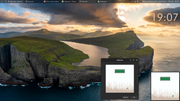
I'm now on the third version of your script.
However, these errors still appear in the terminal:
1.
album_cover
Swiss Pop
Carole King - Hard Rock Café <----
Christophe Maé <----
On s'attache <----
or
Patent Ochsner
Wo bisch du hüt z Nacht <----Terminal
curl: (92) HTTP/2 stream 1 was not closed cleanly: PROTOCOL_ERROR (err 1)2. Very often, a completely “wrong” album_art.png is displayed, which looks like this = the first hit applies.
Can you possibly improve this?
the script
#!/bin/bash
# test1=$(audtool current-song-tuple-data title | awk -F' - ' '{print $1}')
# test2=$(audtool current-song-tuple-data title | awk -F' - ' '{print $2}')
test1=$(audtool current-song-tuple-data title | awk -F' - ' '{print $1}' | sed 's/\\u00e9/e/g' | sed 's/\\u00c4/A/g' | sed 's/\\u00e4/a/g' | sed 's/\\u00d6/O/g' | sed 's/\\u00f6/o/g' | sed 's/\\u00dc/U/g' | sed 's/\\u00fc/u/g' | sed 's/\\u1e9e/SS/g' | sed 's/\\u00df/ss/g')
test2=$(audtool current-song-tuple-data title | awk -F' - ' '{print $2}' | sed 's/\\u00e9/e/g' | sed 's/\\u00c4/A/g' | sed 's/\\u00e4/a/g' | sed 's/\\u00d6/O/g' | sed 's/\\u00f6/o/g' | sed 's/\\u00dc/U/g' | sed 's/\\u00fc/u/g' | sed 's/\\u1e9e/SS/g' | sed 's/\\u00df/ss/g')
if [[ "$test1" == "$(sed -n '1p' $HOME/.config/conky/Audacious/album_cover)" && "$test2" == "$(sed -n '2p' $HOME/.config/conky/Audacious/album_cover)" ]]; then
exit 0
fi
echo $test1 > $HOME/.config/conky/Audacious/album_cover
echo $test2 >> $HOME/.config/conky/Audacious/album_cover
if [[ "$test1" == "" && "$test2" == "" ]]; then
cp $HOME/.config/conky/Audacious/headphone.png $HOME/.config/conky/Audacious/album_art.png
else
artist=$(sed -n '1p' $HOME/.config/conky/Audacious/album_cover | sed 's/ /%20/g' | sed -e 's/$/%20-&/' | tr '[A-Z]' '[a-z]')
title=$(sed -n '2p' $HOME/.config/conky/Audacious/album_cover | sed 's/ /%20/g' | sed -e 's/$/\&size=medium&/' | sed 's/^/%20&/' | tr '[A-Z]' '[a-z]')
curl -H 'User-Agent: Mozilla/5.0 (X11; Linux x86_64; rv:80.0) Gecko/20100101 Firefox/80.0' -o $HOME/.config/conky/Audacious/image "https://aaaas.deno.dev?query=$artist$title"
album_art=$(sed -n '1p' $HOME/.config/conky/Audacious/image | sed 's/{"image":"//' | sed 's/"}//')
if [[ "$album_art" == "" ]]; then
cp $HOME/.config/conky/Audacious/not_available.png $HOME/.config/conky/Audacious/album_art.png
else
curl -H 'User-Agent: Mozilla/5.0 (X11; Linux x86_64; rv:80.0) Gecko/20100101 Firefox/80.0' -o $HOME/.config/conky/Audacious/album_art.png "$album_art"
convert $HOME/.config/conky/Audacious/album_art.png $HOME/.config/conky/Audacious/album_art.png
> $HOME/.config/conky/Audacious/image
fi
fi
#### Disable conky when turn off Audacious
test3=$(ps -A | grep audacious)
if [[ "$test3" == "" ]]; then
audacious_conky=$(pgrep -a P-Rconky10 | awk '/Audacious-stream-conky/{print $1}')
kill -SIGKILL $audacious_conky
fiThanks!
Last edited by unklar (2025-09-10 17:48:32)
Offline
![[BunsenLabs Logo]](/img/bl.svg)


